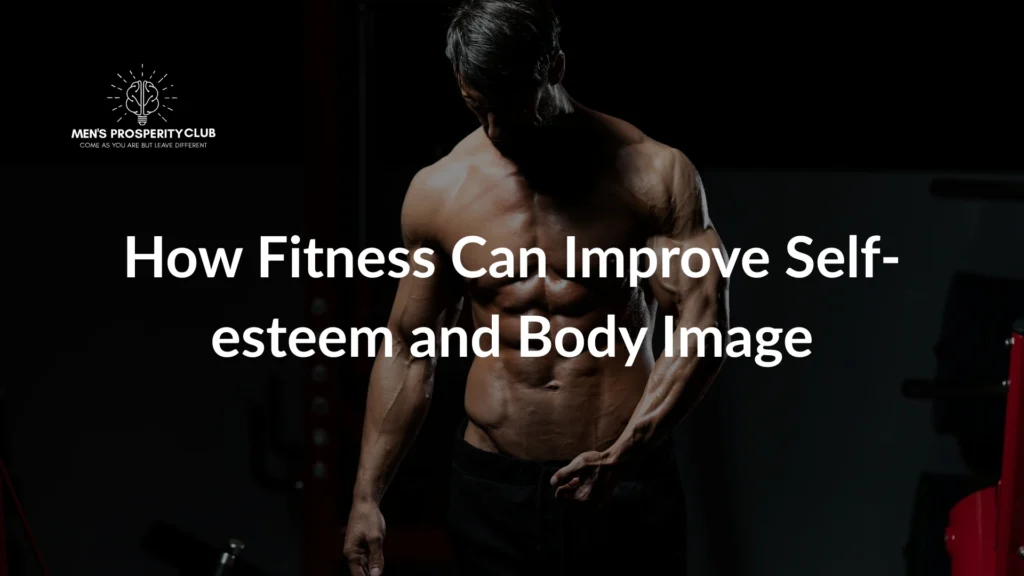Body image concerns plague millions of British adults daily, with research revealing that 8% have contemplated cosmetic procedures, fillers or Botox due to dissatisfaction with their appearance. Adult body dysmorphia and negative self-perception have reached concerning levels, particularly following the pandemic’s impact on mental health and lifestyle changes. However, regular physical activity offers a powerful, natural solution that can transform both how we perceive ourselves and how we feel about our bodies.
The Mental Health Crisis and Physical Activity Connection
The UK faces a mental health epidemic, with 1 in 6 people aged 16+ experiencing symptoms of common mental health problems like depression or anxiety in the past week. Physical inactivity compounds this crisis, with the NHS reporting that inactivity contributes to almost 1 in 10 premature deaths from coronary heart disease and 1 in 6 deaths from any cause. This creates a dangerous cycle where poor mental health reduces motivation for exercise, whilst physical inactivity worsens psychological wellbeing.
However, fitness offers a powerful intervention for mental health challenges.Regular exercise can help with anxiety, depression, and ADHD, as well as relieve stress, increase memory, improve sleep, and make you feel better overall. Recent UK research demonstrates that moderate-to-vigorous physical activity shows significant negative associations with poor mental health, anxiety symptoms, and depressive symptoms. Furthermore, polling of 2,271 UK adults reveals that mental health now ranks as the primary motivation for exercise (54%), surpassing getting in shape (49%).

How Exercise Transforms Self-Perception
Breaking the Mental Health Cycle
Depression and anxiety often create vicious cycles that trap individuals in negative thought patterns about themselves and their bodies. These conditions frequently manifest through distorted self-perception, social withdrawal and reduced physical activity—all factors that further diminish self-esteem and worsen body image concerns.
Exercise interrupts this destructive pattern by providing immediate neurochemical relief. Both aerobic exercise and strength training effectively reduce depressive and anxiety symptoms, offering patients the opportunity to choose activities they prefer. Higher intensity exercise shows greater improvements for depression and anxiety, whilst shorter to mid-duration sessions prove more effective than longer workouts.
Immediate Confidence Boosters Through Mental Health Improvement
Regular exercise creates immediate psychological benefits that directly combat mental health challenges whilst boosting self-esteem. When you engage in physical activity, your brain releases endorphins—natural mood elevators that create feelings of happiness and accomplishment whilst reducing symptoms of depression and anxiety. Additionally, completing a workout provides tangible evidence of your capabilities, reinforcing positive self-perception even when mental health conditions typically promote self-doubt.
The NHS emphasises that physical activity delivers significant benefits for both physical and mental health, helping prevent and manage over 20 chronic conditions, including depression. This comprehensive health improvement naturally leads to enhanced self-confidence as individuals feel more capable and resilient.
Body Image Enhancement Through Movement
Physical activity reshapes how we view our bodies by shifting focus from appearance to function. Instead of obsessing over perceived flaws, regular exercisers begin appreciating what their bodies can achieve. This functional approach to body image proves particularly powerful in combating negative self-perception.
Studies show that body image is strongly and favourably linked to self-efficacy, self-esteem, and engagement in sports. Consequently, as fitness levels improve, individuals experience enhanced body satisfaction alongside increased self-worth.
The Science Behind Exercise and Self-Esteem
Neurochemical Changes
Exercise triggers profound neurochemical changes that directly influence self-esteem. Physical activity increases production of brain-derived neurotrophic factor (BDNF), which supports brain health and cognitive function. Meanwhile, regular exercise reduces cortisol levels—the stress hormone that often contributes to negative self-perception.
These physiologic changes lay the groundwork for enhanced mental well-being. Physical activity encompasses various forms of movement, including walking, running, dancing, swimming, yoga, or gardening, all contributing to enhanced mental wellbeing.
Long-term Psychological Benefits
Consistent exercise participation creates lasting psychological improvements. Studies reveal that physical exercise relates to subjective wellbeing through the mediation of body image and self-esteem. This relationship suggests that fitness creates a positive cycle: improved physical condition enhances body image, which strengthens self-esteem, ultimately leading to greater overall life satisfaction.
Practical Strategies for Building Confidence Through Fitness
Start Small, Think Big
Beginning a fitness journey can feel overwhelming, particularly for those struggling with self-esteem issues. However, starting with manageable activities builds confidence gradually. Walking for 10 minutes daily, taking stairs instead of lifts, or dancing to favourite songs creates momentum without intimidation.
The UK Chief Medical Officers recommend adults engage in at least 150 minutes of moderate-intensity activity weekly. Breaking this into smaller segments—perhaps five 30-minute sessions—makes the goal more achievable whilst building sustainable habits.
Choose Age-Appropriate Activities
Adult fitness doesn’t require high-impact activities or extreme challenges. Many adults discover joy in activities they previously overlooked—swimming provides excellent cardiovascular benefits whilst being gentle on joints, yoga combines flexibility with mindfulness, and walking groups offer social interaction alongside exercise. Professional adults often appreciate activities that can be scheduled flexibly, such as home workouts, lunch-hour gym sessions, or evening classes.
Sustainable fitness requires genuine enjoyment rather than forcing yourself through activities that feel like punishment. Whether it’s ballroom dancing, hiking, tennis, or resistance training, engaging in activities you anticipate creates lasting motivation whilst building positive associations with movement.
Set Process-Oriented Goals
Instead of focusing solely on outcome goals like weight loss, emphasise process goals such as consistency, technique improvement, or strength gains. Process goals provide more frequent success opportunities, reinforcing positive self-perception throughout your fitness journey.

Addressing Common Barriers
Managing Exercise Anxiety and Mental Health Symptoms
Individuals with anxiety disorders may initially find exercise challenging, as physical sensations—breathlessness, rapid heart rate, sweating—can mimic anxiety or panic attack symptoms. However, this similarity actually provides an opportunity to develop coping strategies whilst building physical fitness. Starting with gentle activities allows gradual exposure to these sensations in a controlled, positive context.
For those experiencing depression, motivation often presents the biggest barrier. Beginning with outdoor activities can provide additional mental health benefits, as people report higher levels of vitality, enthusiasm, pleasure, and self-esteem alongside lower levels of tension, depression, and fatigue after outdoor exercise compared to indoor alternatives.
Managing Unrealistic Expectations
Social media often promotes unrealistic fitness standards that can damage self-esteem. Instead of comparing yourself to heavily edited images or professional athletes, focus on personal progress. Document your journey through measurements, strength improvements, or how you feel rather than just appearance changes.
Finding Time and Motivation
Busy schedules frequently derail fitness plans. However, physical activity doesn’t require hours of commitment. Short, intense workouts can provide significant benefits. Additionally, incorporating movement into daily activities—such as walking meetings or active commutes—maximises efficiency whilst improving fitness.
Building a Supportive Environment
Community Connection
Exercise often provides social opportunities that enhance self-esteem beyond the physical benefits. Joining fitness classes, sports clubs, or running groups creates supportive communities where individuals share similar goals and challenges. These connections foster belonging whilst providing accountability partners.
Professional Guidance
Personal trainers, physiotherapists, or fitness instructors can provide expert guidance tailored to individual needs and limitations. Professional support ensures safe, effective exercise whilst building confidence through proper technique and progressive challenges.
The Ripple Effect: How Improved Self-Esteem Impacts Life
Enhanced self-esteem through fitness creates positive changes extending far beyond physical health. Increased confidence often translates to better professional performance, stronger relationships, and greater willingness to pursue new opportunities. Additionally, improved body image reduces anxiety around social situations, enabling more fulfilling personal interactions.
Government research indicates that half of UK adults believe their appearance affects their life prospects, highlighting the significant impact body image has on overall quality of life. By addressing these concerns through fitness, individuals can unlock their full potential across multiple life domains.
Creating Lasting Change
Sustainable improvement in self-esteem and body image requires consistent effort and patience. Fitness provides the perfect vehicle for this transformation, offering both immediate mood benefits and long-term confidence building. Remember that progress isn’t always linear—some days will feel more challenging than others, and that’s perfectly normal.
The key lies in persistence and self-compassion. Celebrate small victories, learn from setbacks, and maintain focus on how exercise makes you feel rather than just how it makes you look. By prioritising movement, function, and personal growth over appearance alone, fitness becomes a powerful tool for building lasting self-esteem and positive body image.
Final Though
Physical activity offers a scientifically-proven pathway to improved self-esteem and body image. With mounting research demonstrating the psychological benefits of exercise, Britons have compelling reasons to prioritise movement for mental health. Whether you’re taking your first steps towards fitness or rekindling an old relationship with exercise, remember that every movement counts towards building confidence and self-worth.
The journey towards improved self-esteem through fitness isn’t about perfection—it’s about progress, consistency, and learning to appreciate your body’s remarkable capabilities. Start where you are, use what you have and take one step at a time towards a more confident, healthier you.




